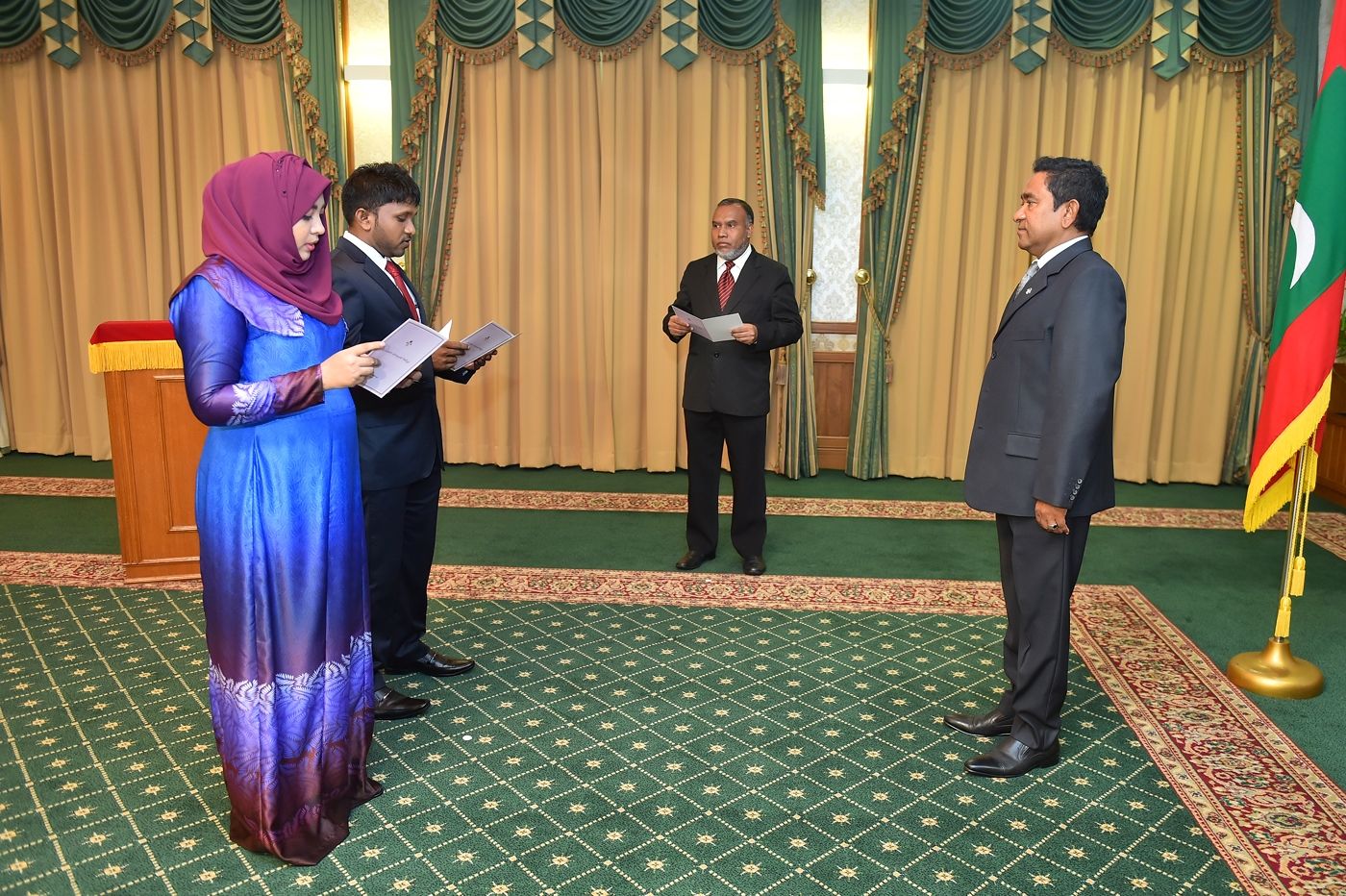President overhauls the employment tribunal
Yameen has overhauled the seven-member employment tribunal, appointing four new members to the panel in the last month alone.

08 Aug 2016, 09:00
President Abdulla Yameen has overhauled the seven-member employment tribunal, replacing its president and vice president and appointing two new members to the panel in the last month.
The president and vice president of the tribunal, which has received praise from lawyers and unions for protecting worker’s rights, were sacked in June and replaced by members, Faaiz Rashad and Ismail Ahmed in July.
Faiz had been appointed to the panel in 2015 and Ismail in 2014.
On Sunday, Yameen appointed Adam Zalif and Mariyam Nishfa to the two vacancies. Zalif is the younger brother of Jumhooree Party MP Ilham Ahmed.
Become a member
Get full access to our archive and personalise your experience.
Already a member?
Discussion
No comments yet. Be the first to share your thoughts!
No comments yet. Be the first to join the conversation!
Join the Conversation
Sign in to share your thoughts under an alias and take part in the discussion. Independent journalism thrives on open, respectful debate — your voice matters.




